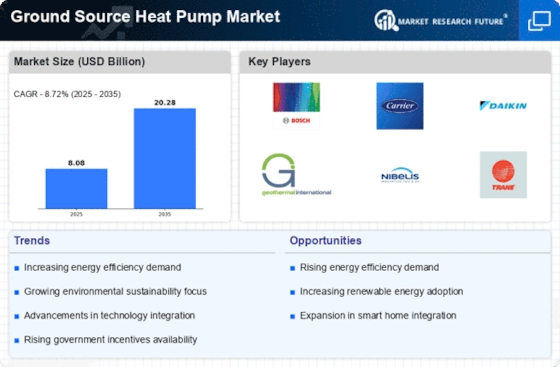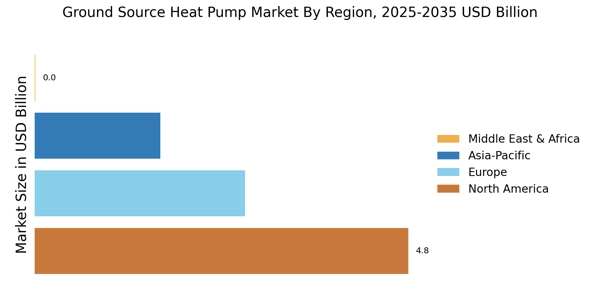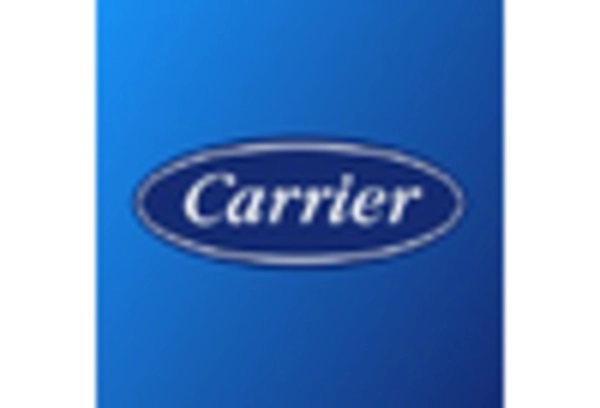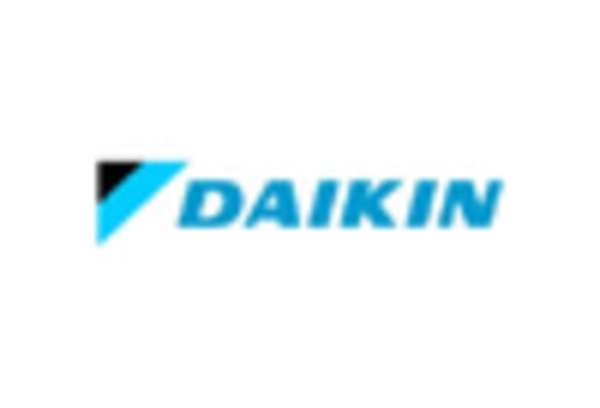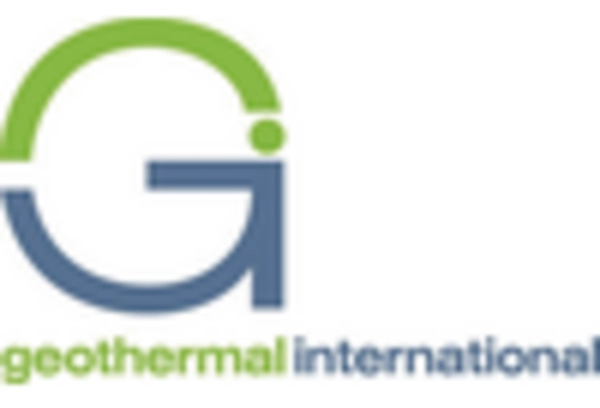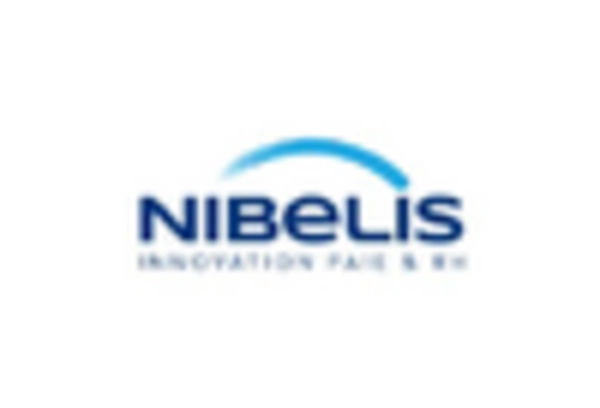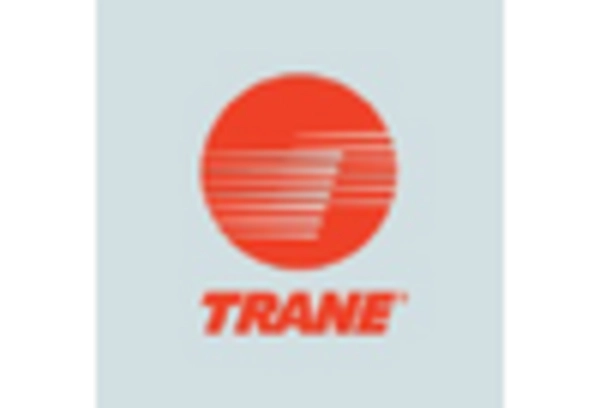Rising Energy Costs
Escalating energy costs are significantly influencing the Ground Source Heat Pump Market. As fossil fuel prices continue to rise, consumers and businesses are increasingly seeking cost-effective heating solutions. Ground source heat pumps offer a viable alternative, providing substantial savings on energy bills over time. Reports indicate that users can save up to 50% on heating costs compared to conventional systems. This financial incentive is compelling, particularly in regions where energy prices are volatile. Consequently, the demand for ground source heat pumps is expected to grow, as more stakeholders recognize the long-term economic benefits associated with these systems.
Technological Innovations
Technological innovations play a vital role in shaping the Ground Source Heat Pump Market. Advances in heat pump technology, such as improved efficiency ratings and enhanced geothermal systems, are making these solutions more attractive to consumers. Innovations in drilling techniques and system design have also reduced installation costs and timeframes, further driving adoption. The market is witnessing the introduction of smart technologies that allow for better monitoring and control of heating systems, enhancing user experience. As these technologies continue to evolve, they are likely to expand the market's appeal, attracting a broader range of consumers and businesses.
Government Policies and Support
Government policies and support are instrumental in propelling the Ground Source Heat Pump Market. Many governments are implementing regulations and incentives aimed at promoting renewable energy adoption. These initiatives often include tax credits, rebates, and grants for the installation of ground source heat pumps. Such financial support can significantly lower the initial investment barrier for consumers. Recent statistics indicate that regions with robust government incentives have seen a 30% increase in ground source heat pump installations. This trend underscores the importance of policy frameworks in fostering a conducive environment for the growth of renewable energy technologies.
Increasing Awareness of Renewable Energy
The growing awareness of renewable energy sources is a pivotal driver for the Ground Source Heat Pump Market. As consumers become more informed about the environmental impacts of traditional heating systems, there is a noticeable shift towards sustainable alternatives. This trend is further supported by educational campaigns and initiatives aimed at promoting energy efficiency. In recent years, the market has seen a surge in interest, with installations of ground source heat pumps increasing by approximately 15% annually. This heightened awareness not only encourages individual consumers to adopt these systems but also influences businesses and governments to invest in renewable technologies, thereby expanding the market's reach.
Urbanization and Infrastructure Development
The ongoing trend of urbanization and infrastructure development is a crucial driver for the Ground Source Heat Pump Market. As urban areas expand, the demand for efficient heating and cooling solutions increases. Ground source heat pumps are particularly well-suited for urban environments, where space is often limited, and energy efficiency is paramount. The integration of these systems into new construction projects is becoming more common, with many developers opting for sustainable heating solutions. In fact, recent data suggests that urban installations of ground source heat pumps have increased by over 20% in the last few years, reflecting a growing commitment to sustainable urban planning.


